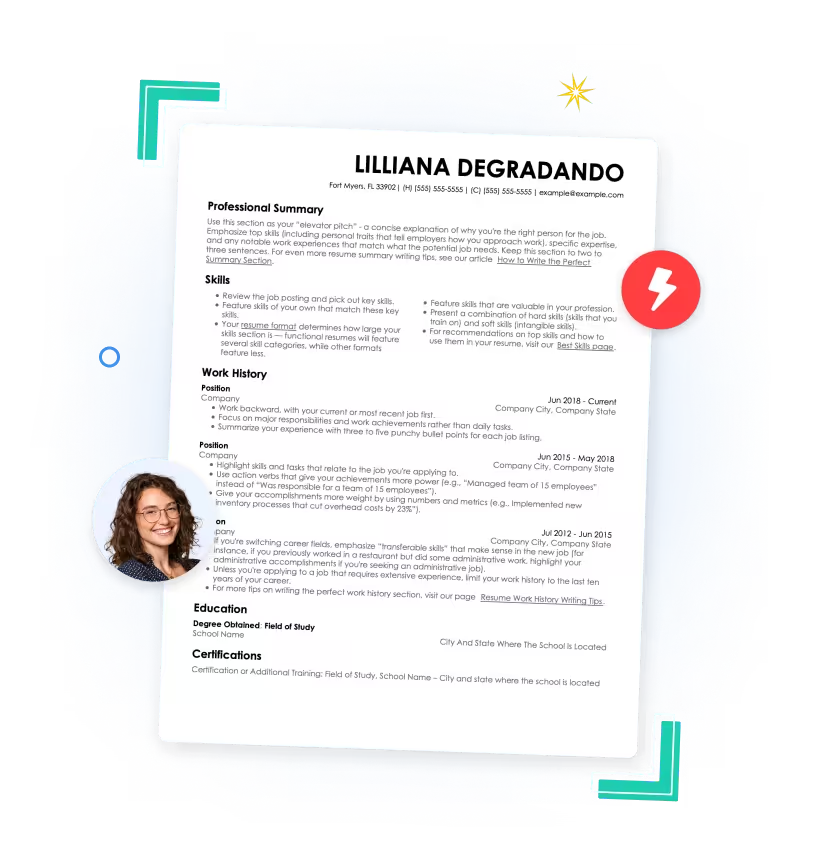How often have you heard the following employment advice: Make sure your resume fits on one page. The truth is that the job market is changing and a one-page resume is no longer the sure-fire way to get a callback. So, exactly how many pages should a resume be?
There are unique circumstances where one-, two-, and even three-page resumes can make the difference between getting a follow-up call or landing on the discard pile. Your unique employment history should dictate the length of your resume. As you sit down to write your resume, ask yourself how many pages you’ll need to explain your professional experience, skills, and unique value.
Let’s get started!
Why Resume Lengths Differ
The job market is full of individuals at different stages of their professional lives. Since your resume is a reflection of your experience and skills, it makes sense that the length of your resume would be unique to you as well. A good rule of thumb is to use one page per decade of experience.
This general advice means you can dedicate ample space to clarify your qualifications and work experience. Just be careful with the amount of detail you devote to each role. You want to pique a recruiter’s attention, not bore them with the minutia of irrelevant jobs.
Here are some general tips.
How Many Pages Should a Resume Be for Entry-Level Employees
The one-page resume isn’t dead; it’s just better suited for particular career stages. For the following jobseekers, the answer to ‘how many pages should a resume be’ is almost always one page.
- New graduates: List the specific skills you learned in your classes, highlight any relevant internships you held, and outline the training courses you’ve completed.
- Career change: Write a resume that focuses on your relevant skill sets. Add a statement summary that details how your professional experience transfers to this new opportunity.
- Multiple positions with one employer: If you’ve climbed the ranks with a single employer, it’s best to try to fit all of your roles on one page. Play with the resume length if you’ve taken on significantly different responsibilities.
- Less than 10 years of experience: A general rule of thumb is if you have less than a decade of experience, your resume should fit on a single page.
How Many Pages Should a Resume Be for Experienced Professionals
Individuals with multiple years of experience should go with a multiple page resume. You spent years developing your marketable skills – two pages lets you show off your accomplishments to the fullest! Just be careful with the tone – there’s a big difference between confidently demonstrating your achievements and bragging.
A two-page resume works best for the following jobseekers:
- More than 10 years of experience: If you’ve held multiple roles with advancing levels of responsibility or can claim a career that has been longer than a decade, you’ll likely need more than a page to describe your skills and experience in detail.
- Jobseekers in engineering and tech: For those seeking jobs in tech, these roles require a lot of technical know-how, so feel free to dive into detail.
How Many Pages Should a Resume Be for Executives
This one’s a tricky, rare bird. You probably never thought to make to make your resume three pages. Most jobseekers should never have a three-page resume, but there are exceptions.
How many pages should a resume be if you have decades of leadership experience or executive experience? One- to two-page resumes don’t provide enough space to detail all of your exceptional qualifications.
The three-page resume length works best for the following jobseekers:
-
- Senior-level managers and executives: Since these are crucial leadership roles, you’ll need to go into specifics about your professional ascent.
- Academic scholars: These jobseekers will need more space to list out published works, educational courses, speech history, and other academic details.
When In Doubt
How many pages should a resume be if you don’t fit any of these categories? Don’t fret: you’ll occasionally fall into unique circumstances where you don’t fit into the guidelines listed here. Luckily, there are no hard or fast rules to resume lengths. Keep in mind the general rule we mentioned before: write one page for every 10 years of experience.
Still having trouble? Use our handy resume builder for tips and tricks to help you get started.
